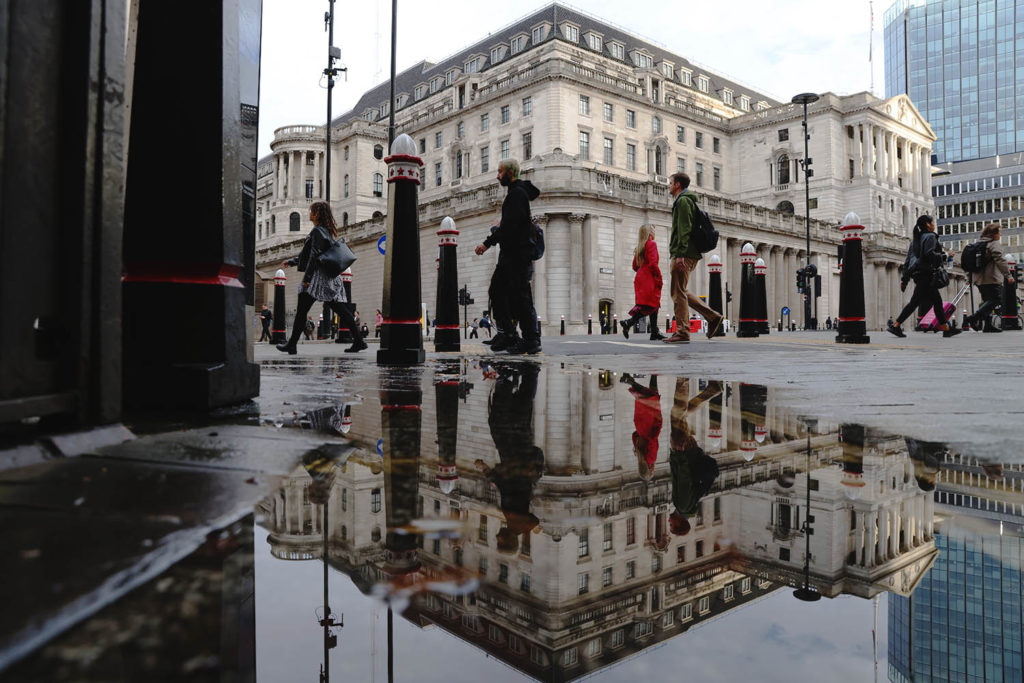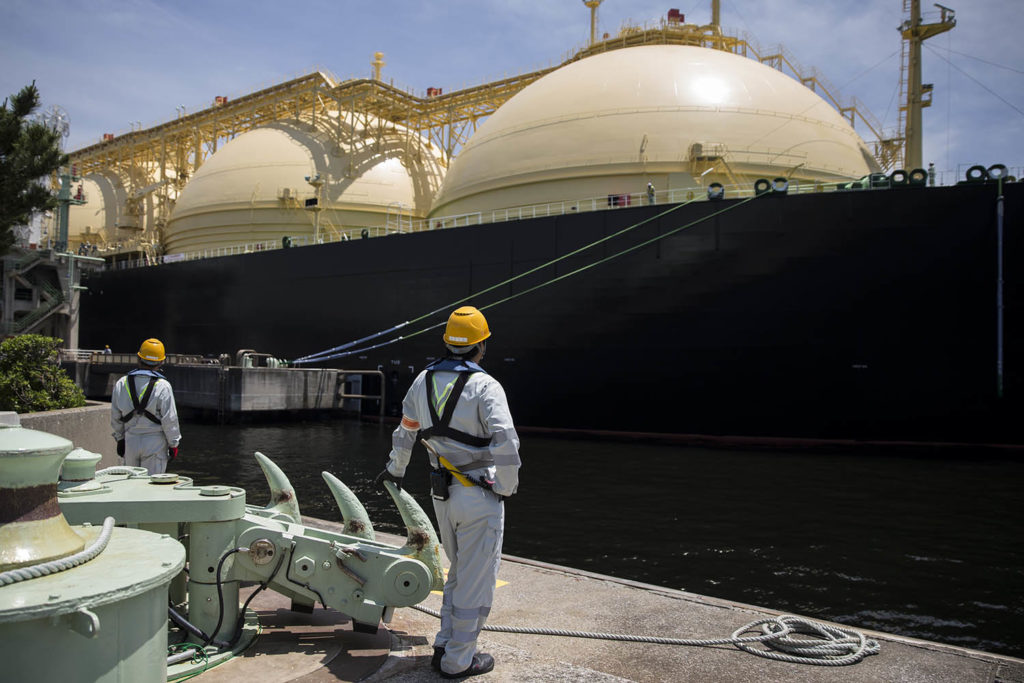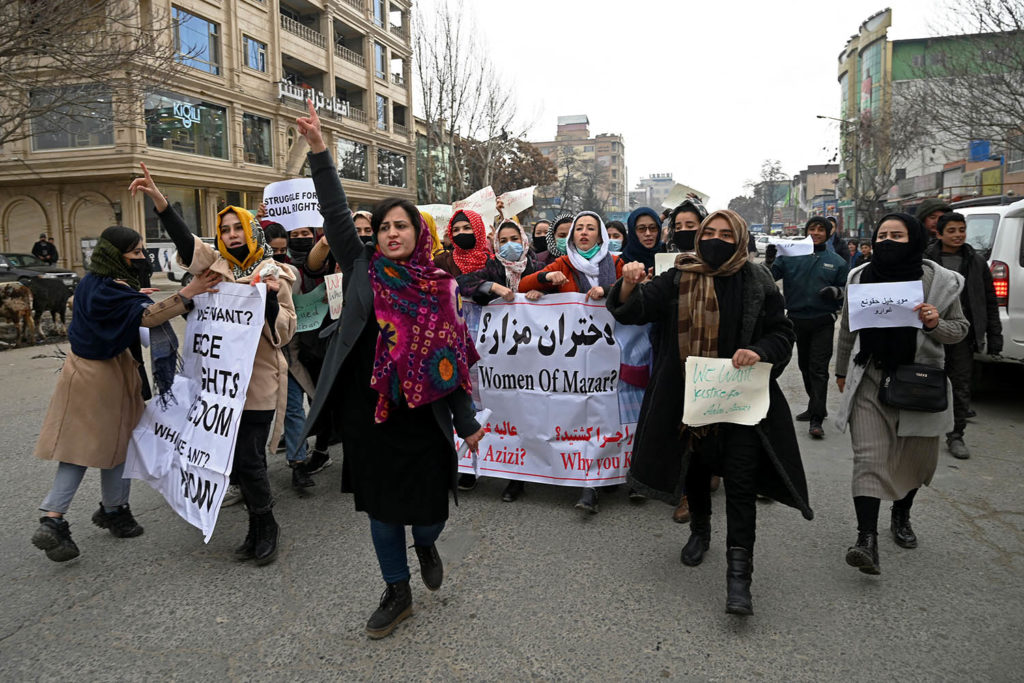What just happened

- Gunmen fired at Libyan Prime Minister Abdulhamid al-Dbeibah’s car in Tripoli, but he survived the assassination attempt.
- Russia and Belarus, which share a long border with Ukraine, started ten days of joint military drills which the US described as “escalatory”.
- Scientists found a child’s tooth and stone tools in a cave in France that suggest Homo sapiens was in Europe earlier than previously thought and before Neanderthals were extinct.
The Bank of England predicts household incomes will fall 2 per cent this year and another 0.5 per cent next year. It would be the UK’s weakest income growth in more than 70 years, and it’s all because of high inflation and bad economic management.
- The price of energy is the biggest contributor to the UK’s 4.8 per cent inflation rate. The country is a net importer of energy, particularly gas, whose global price has nearly doubled since last year. In response, the British government will raise its energy price cap by 54 per cent in April, taking the annual amount a utility company can charge the average customer from £1,277 to £1,971. Goldman Sachs expects this will raise inflation to 6.8 per cent that month, a level unseen since 1991.
- Trade imbalances are the other major contributor to the UK’s inflation rate. It’s remarkable that US consumption alone drove almost all of the demand for goods among the G7 economies last year, creating supply bottlenecks.
Workers will insist on higher wages to compensate for higher prices. Wage growth is running at about 4 per cent and the Bank of England thinks it will keep growing at that rate over next year. But wages are paid by companies whose profits will be squeezed, creating pressure to raise prices to cope. If this happens the country will find itself in an inflationary spiral, which wouldn’t be good for anyone. That is why the Bank’s governor, Andrew Bailey, made the insensitive but technically correct comment last week that “we do need to see a moderation of wage rises”.
The Bank, which recently raised its base rate from 0.25 to 0.5 per cent, can raise it again to counter rising inflation. But there are risks. Britain’s economy remains weak – France, for example, is forecast to grow at a similar rate to the UK but with lower inflation. Higher interest rates, which will raise the costs of doing business in general, may weaken it further. This is why the government has announced measures aimed at softening the blow of higher energy prices – but the blow will land nonetheless.
- The £200 discount on electricity bills announced last week, to start in October, will last only a year and must then be repaid. It’s also minor: even after the discount, the increase in energy prices will be 39 per cent.
- There is a further £150 of support for households in the bottom four council tax bands, but council tax bands are based on the 1991 value of properties, which is outdated. Much of the support will go to people who don’t need it.
The government, at the same time, is increasing national insurance contributions. It says it’s doing this to spend more on health and social care – a noble aim. But the timing is odd. Along with higher prices, this extra tax on workers’ incomes will give them another reason to demand higher wages, taking us back to square one.
It’s not a pretty picture. The government isn’t making it prettier.

Gas flows
Japan will divert some of its liquefied natural gas (LNG) cargoes to Europe after requests from the US and EU. The decision was taken as tensions between Ukraine and Russia continued to simmer, with many European countries which import gas from Russia nervous about their energy security (see last Tuesday’s Sensemaker). Japan’s industry minister, Koichi Haguida, said there was a need “to work with the G7 countries, especially comrade countries who share our values”. The cost of transporting LNG from the US to Europe has meanwhile collapsed, reflecting the unprecedented number of ships heading eastward across the Atlantic. Japan’s diverted cargoes are expected to arrive in Europe in March.

Missing women
At least four women who participated in protests demanding women’s rights in Afghanistan have gone missing, the BBC reports. The Taliban deny they’re holding any of the women but one participant in a demonstration that took place in Kabul last month said she had been told everyone involved would be punished. The United Nations says it’s concerned about reprisals against activists and journalists, and has received “credible allegations” of more than 100 extrajudicial killings of former government officials. The Taliban banned women from many jobs outside the health and education sectors, restricted their access to education beyond the sixth grade, and ordered them to wear the hijab.
Separately, a UK court convicted Ian Stewart of murdering his wife, Diane Stewart, six years before being convicted of killing the children’s author Helen Bailey. The Bailey case reopened the investigation into Diane Stewart’s death, after which an examination of her brain showed she had been strangled rather than suffering a fatal epileptic fit as her husband claimed. We investigated similar cases in the Hidden Homicides series.
Breast cancer drug
A study in the New England Journal of Medicine found that Keytruda, an immunotherapy drug, can reduce the risk of an aggressive form of breast cancer returning by more than a third. The drug helps the immune system recognise and attack cancer cells. It’s already used to treat lung cancer, skin cancer, bladder cancer, and Hodgkin lymphoma. The study, based on 1,174 patients across 21 countries and conducted over more than three years, found that if Keytruda is given in combination with chemotherapy before surgery and then on its own after surgery it can stop the disease coming back in women with triple-negative breast cancer. More than 8,000 women in the UK are diagnosed with this cancer every year.
Covid rules
Boris Johnson, who is under criminal investigation for multiple breaches of Covid rules, said that all pandemic restrictions will be abolished in England in two weeks. That includes the requirement to isolate for at least five days after testing positive for the virus. The prime minister moved the plan to lift rules forward by a month, saying it’s because “the hard work of the British people is paying off”. Some scientists warned that it may be too soon and that the pandemic isn’t over.











